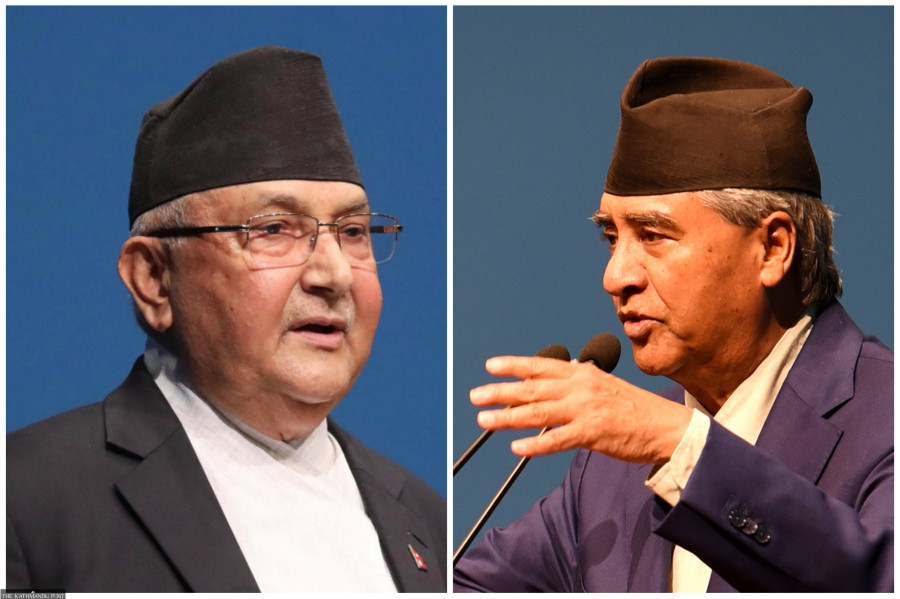Editorial
Shaky-shaky
Dissatisfaction with the Oli government—and his generation of leaders—runs wide and deep.
Pretty much since its formation on July 15 last year, speculations have swirled over an imminent collapse of the Congress-UML government. On the eve of Nepali Congress President Sher Bahadur Deuba’s ‘medical trip’ to Thailand earlier this month on April 20, these speculations reached a fever pitch. A quick ouster of the KP Sharma Oli government was being predicted. Oli’s UML feared that Deuba had gone to Bangkok not so much for medical treatment, but to hold dialogue with delegates of ‘external powers’ so as to create the right conditions for the dismissal of the federal government. But upon his return to Kathmandu on April 25, Deuba was quick to shoot down such ‘idle speculations’ and said the coalition will endure. Speaking the next day, Oli could not suppress his mirth as he taunted opposition leaders who had been banking on the fall of his government after Deuba’s return. Oli’s taunts aside, his government continues to face serious threats, mostly from inside the country. For none of the major bones of contention between the country’s two largest parties and major constituents of the current government has been removed.
Top Congress leaders bar Deuba continue to be displeased at what they see as the sidelining of their party in the government. Whether it was the dismissal of the Nepal Electricity Authority Chief Kulman Ghising, the ‘forced’ resignation of Tribhuvan University Vice-chancellor Keshav Jung Baral, or the long delay in the appointment of a new Nepal Rastra Bank governor—they hold Oli responsible for all these anomalies. The Congress leaders say they struggle to explain the prime minister’s arbitrary decisions to their constituents, and as such the party’s popularity is tanking. They, nonetheless, have not been able to convince the Congress president to ditch Oli. This is perhaps because as much as Deuba mistrusts Oli, his lack of trust in the shape-shifting Pushpa Kamal Dahal, chair of the main opposition CPN (Maoist Centre), is greater still. Deuba has yet to get over Dahal’s ‘betrayal’ when the Maoist chair, as the prime minister, abruptly broke the coalition with the Congress and joined hands with the UML in December 2022. So even as Dahal has now publicly offered Deuba the post of prime minister if he were to ditch Oli, Deuba thinks his best bet of becoming prime minister—and saying there for a bit—is through the continuation of the current coalition.
These in-coalition political manoeuverings aside, the Oli government needs to do something drastic to stem a rapid slide in its popularity. The Congress leaders are not wrong when they accuse Oli of acting alone. Also, the blatant political interference in vital state institutions like the power utility and the country’s biggest university badly hurt the government’s credibility. An increasingly larger mass believes that only if all three of the repeatedly tried and tested leaders—Deuba, Oli and Dahal—retire from politics will there be meaningful positive change in Nepal. It takes breathtaking hubris on the part of these leaders, and Oli as the government head in particular, to deny the existence of this now widely-shared sentiment.




 16.25°C Kathmandu
16.25°C Kathmandu












.jpg&w=300&height=200)

